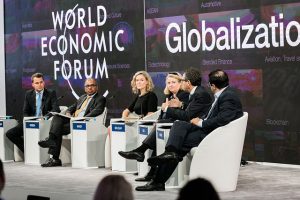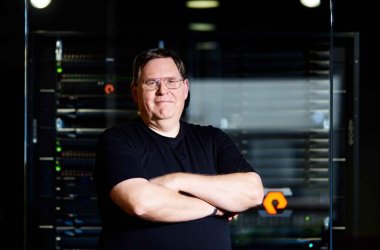 In the second edition of World Economic Forum’s annual meeting of the Global Future Councils, the 35 councils’ aim was to gather experts from different walks of life to identify new ways for technology to reshape the future.
In the second edition of World Economic Forum’s annual meeting of the Global Future Councils, the 35 councils’ aim was to gather experts from different walks of life to identify new ways for technology to reshape the future.
Taking place in Dubai, over the course of two days, 11th and 12th November, we will see council members joined by UAE public and private sector leaders to discuss the future of 10 different areas.
According to the statement released, the focus is on the councils’ “collective knowledge on creating a vision for the year 2030 that overcomes current and future challenges, with the ultimate aim of creating a future more sustainable and human-centred than the world in which we live today.”
Under the first area, ‘Future of work’, redesigning labour markets and social security systems in ways that grow economies and protect societies will be discussed. Applying personalised medicine and enhancement technologies to ensure people not only live longer, but stay healthy longer will be a key focus within ‘Human health’. When it comes to ‘People and mobility’, managing increasing levels of human migration in ways that benefit people on the move, their place of origin and their destination will be some of the main highlights. In ‘Infrastructure investment’, experts will discuss finding new ways of financing the massive investments needed to upgrade infrastructure in the age of autonomous vehicles and additive manufacturing
Preserving and protecting the Earth’s natural capital at a time when it is coming under increasing pressure will be main emphasis under ‘Our global commons’. The forum will also see several discussions around identifying the technologies and infrastructure needed to accelerate the shift to a carbon-free global energy system within ‘Decarbonisation’. Meeting the nutritional needs of a global population of 8.5 billion will be a primary concern discussed in ‘Food sustainability in 2030’.
‘Information ubiquity’ will be all about ensuring a sustainable flow of content and information that adds to, rather than detracts from, the inclusiveness of societies. Maximising the benefits of new technologies by adopting governance models that are innovative, agile and inclusive is one of the most important elements in ‘Governance in the Fourth Industrial Revolution’. ‘Ethics and values in the Fourth Industrial Revolution’ will be about deciding the values that help us make responsible choices when we develop technology and ensure that it is only used as a force for good.
The co-chair of the Annual Meeting of the Global Future Councils 2017 is Mohammad Abdullah Al Gergawi, Minister of Cabinet Affairs and the Future of the United Arab Emirates.





